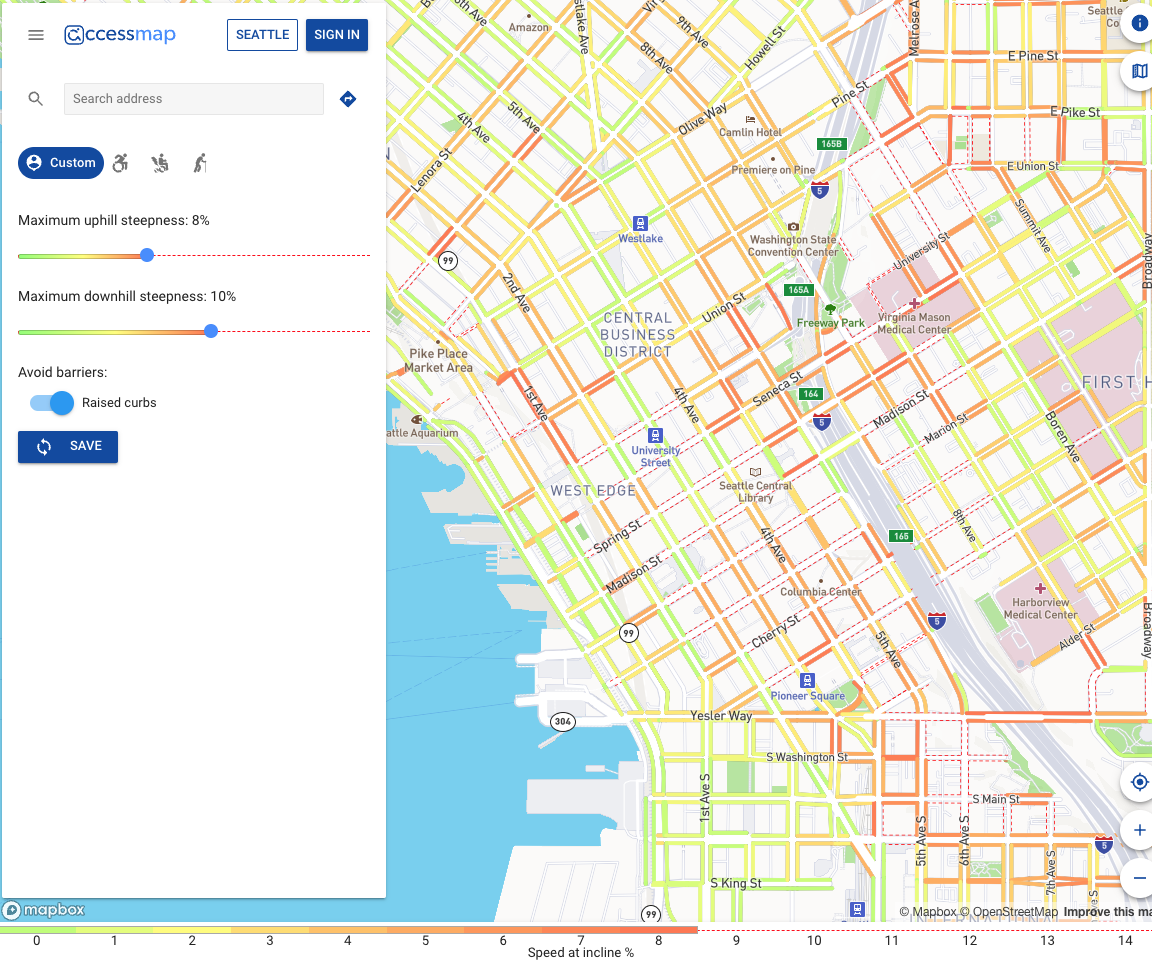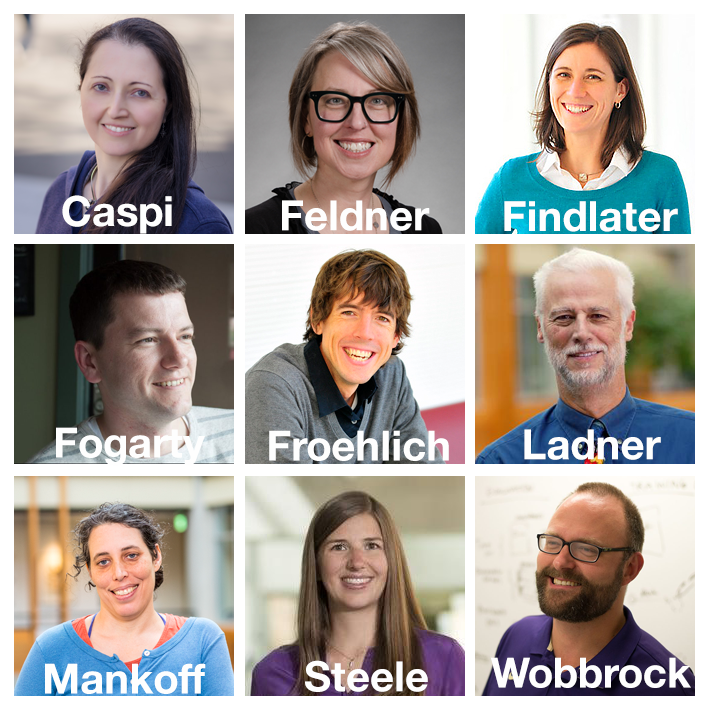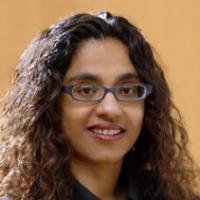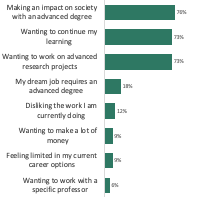Expanding the Pipeline: The Center for Research and Education on Accessible Technology and Experiences (CREATE)
Abstract
In an era of rapidly evolving technology and increasing interconnectedness, full participation in society depends on the successful use of technology. Thus, to ensure equity and participation for people with disabilities, technology must be accessible—we must create and adapt interactive systems to improve access to technology and to the world at large. The University of Washington Center for Research and Education on Accessible Technology and Experiences (CREATE) is dedicated to propelling accessible technology research and education from incremental improvements to paradigm-shifting breakthroughs that enable greater inclusion and participation for people of all abilities. This article briefly introduces CREATE’s mission and then highlights some of its recent research into the impact of the pandemic on students and best practices for hybrid meetings.
 CREATE’s Mission
CREATE’s Mission
It has been 30 years since the Americans with Disabilities Act (ADA) passed, but the COVID-19 crisis has vividly highlighted that equal access to technology is not yet a reality. CREATE’s mission is to make technology accessible, and to make the world accessible through technology. By bringing together research, education, and translation-to-practice in one collaborative organization, CREATE provides the infrastructure to catalyze progress on moonshot projects—challenges that require extended, multidisciplinary teams. CREATE aims to fully support people with disabilities in achieving their goals by:
- Inventing the next generation of accessible technologies.
- Making sure that people with disabilities are included in the data driving today’s world.
- Ensuring that our inventions land in the hands of the people we serve.
- Improving the presence of people with disabilities in education and the workforce.
- Educating the next generation of technologists to prioritize accessibility in their current and future work.
- Centering the voices of people with disabilities in all of these efforts.
While research is a focus of CREATE, translation and education are also at the heart of CREATE, and cross-campus collaboration is a core value. Translation-to-practice is at the heart of CREATE, where research results and technologies are moved into the world to have the greatest possible impact on people with disabilities. We must provide pathways for translation and ensure diverse voices inform our innovations. Led by Anat Caspi, CREATE’s Director for Translation, CREATE partners with the Taskar Center at the University of Washington to engage community partners, provide pathways for translation, and ensure diverse voices inform our innovations. CREATE partners also include HuskyADAPT, the UW Access Technology Center, and UW Disability Studies, among others.
CREATE also has an educational mission, which aims to educate and empower the next generation of technology creators and managers to prioritize accessibility in their work, and to broaden participation in the workforce to include more people with disabilities. CREATE has an active postdoctoral program that welcomes applications (contact us at create-contact@uw.edu). This work addresses inequalities due to class, race, and gender for people with disabilities, and includes research to understand and address barriers. Led by Richard Ladner, CREATE’s Director for Education, the Center is leveraging its connections with organizations like DO-IT, AccessComputing, AccessEngineering, and TeachAccess to develop new courses and create pathways for more individuals with disabilities to pursue careers in technology and design.
Creating Equity During COVID-19
During the COVID-19 pandemic, online learning became the norm by necessity. As the computing community begins to return to in-person classes, it is natural to ask what, if anything, we should keep from these experiences. CREATE students Han Zhang and Kelly Mack along with CREATE Co-Director Jennifer Mankoff and several co-authors[1] spent 2020 and 2021 investigating this very question.
COVID-19 upended college education and the experiences of students due to the rapid and uneven shift to online learning. While adjusting to online learning, students also struggled with isolation, distraction, and financial pressures. The researchers compared 28 undergraduate students with disabilities (including mental health concerns) to their peers during 2020, to assess differences and similarities in their educational concerns and related challenges in the pandemic. They found something that people with disabilities have been saying for a long time—that for many students with disabilities, going online, and the increased flexibility offered by their instructors, was more accessible than their prior educational experiences.
Discussions of accessible online learning have typically focused on concerns such as video captioning and image description. These are indeed critical, and should be a norm in any presentation. However these improvements do not address some of the most common disabilities found in higher education and the workplace, such as chronic conditions or mental health concerns. Technologies, or required activities, may aggravate such symptoms, and the risks of in-person gatherings may also be higher for some people with disabilities.
The team’s findings suggest a need to consider the accessibility of in-person events not only in terms of basic materials access but also in terms of the impacts, positive and negative, of both in-person and online versions of such events on this broader range of people with disabilities.
For example, online learning can reduce fatigue, a symptom of many chronic illnesses, by reducing travel needs. In a more negative example, it is hard to disentangle online interaction from the physical and social isolation experienced by everyone during the pandemic. This isolation from peers has been detrimental to learning, mental health, and may amplify the disconnection felt by people with disabilities. Recorded events that can be watched at different times and speeds, online opportunities for 1:1 interaction, and chat features for asking questions during lectures were also helpful to students in our study. At the same time, the lack of interactivity of online experiences decreased engagement and intensified mental health concerns.
Overall, we see a critical need for flexible approaches to instruction, event planning, and other student and professional experiences in which the computing community engages. Currently, it is seen as unsustainable, nigh impossible, to offer truly equivalent in-person and online events. However, we are innovators, and we will learn by attempting to do such things.
Further, there are many simple steps that can be taken today with no new innovation.
- Online-only events can be placed in rotation with other forms of interaction. For example, a class can have an online-only section, or a conference can meet online once every few years just as it meets in different cities or countries or on different continents over time.
- Next, basic access standards are still often not met. This includes posting slides ahead of lectures, recording lectures when possible, and giving extra time for assignments or other needs (such as final versions of papers or presentations for conferences).
- Additionally, it is critical to try to replicate better peer-to-peer interaction in online events. AccessSICHI, in their open letter on why “CHI 2022 Should Be a Virtual Only Event,” highlighted several possibilities for improved networking, including holding “Regional meetings with … travel scholarships supporting and encouraging cross-pollination across regions”; “feature articles on scholars on a regular basis and to introduce them to the community” in professional magazines.
The accessibility gains and challenges that the COVID-19 pandemic has spawned must not be erased as we return to in-person learning. Instead, these must become standard rather than only happening when a disabled person asks for them. One of the most telling insights from our study was that many students who never registered for, or qualified for, disability services benefited tremendously from the pandemic-related changes that were offered to all students. The maxim was to be flexible and give everyone the benefit of the doubt. Documentation and rules became less important than compassion. This attitude should be a norm we all maintain going forward.

Acknowledgments
The following faculty are core founding members of CREATE: Anat Caspi (Director for Translation); Heather Feldner, Assistant Professor, Rehabilitation Medicine: Physical Therapy; Core Faculty, Disability Studies; Affiliate Faculty, Center for Technology and Disability Studies Director, IMPACT Collaboratory; Leah Findlater, Associate Professor, Human Centered Design & Engineering; Director, Inclusive Design Lab; James Fogarty, Professor, Paul G. Allen School of Computer Science & Engineering; Jon Froehlich, Associate Professor, Paul G. Allen School of Computer Science & Engineering; Richard Ladner (Director for Education); Jennifer Mankoff (Co-Director); Kat Steele, Albert S. Kobayashi Endowed Professor, Department of Mechanical Engineering Director, Ability & Innovation Lab, Co-Director, AMP Lab; and Jacob O. Wobbrock (Co-Director)
About the Authors
Jennifer Mankoff, Co-Director, Richard E. Ladner Professor, Paul G. Allen School of Computer Science & Engineering; Director, Make4all Lab, make4all.org. Mankoff’s research focuses on accessibility and fabrication technology. She has led the effort to better understand both clinical and DIY stakeholders in this process, and has developed better, more usable tools for production. Her work also encompasses access to STEM education and mobile devices. jmankoff@uw.edu
Jacob O. Wobbrock, Co-Director, Professor, The Information School; Director, ACE Lab, http://depts.washington.edu/acelab/ Wobbrock’s research seeks to scientifically understand people’s experience of computers and information, and to improve those experiences through design and engineering, especially for people with disabilities. His specific research topics include input & interaction techniques, human performance measurement & modeling, HCI research & design methods, mobile computing, and accessible computing. wobbrock@uw.edu
Reach out to us:
@uwcreate (Twitter)
create-contact@uw.edu
[1] Margie Morris, Paula Nurius, Jennifer Brown, Kevin Kuehn, Yasaman Sefidgar, Xuhai Xu, Eve Riskin, and Anind Dey









